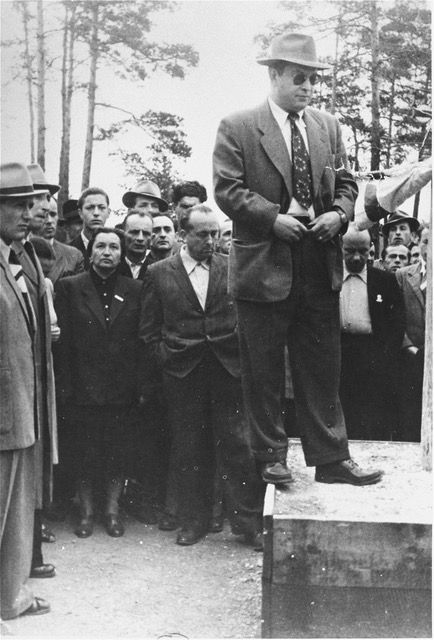INTERNATIONAL HOLOCAUST REMEMBRANCE DAY 2022
- Phyllis Lee
- Jan 27, 2022
- 2 min read
Updated: Sep 17, 2025
For children and grandchildren of Holocaust survivors, it may feel like every day is Holocaust Remembrance Day. It’s in our every cell, and many of us have been moved to pursue careers that allow us to help others. Yet some of us have found our legacy so overwhelming that we have discovered ways to push it away. In the making of this documentary film, I have often heard about “Holocaust fatigue” – the idea that all that needs to be said, whether in books or films, has already been exhausted. Really?
At the same time, we see antisemitic statements and attacks on the rise, and falsehoods about the Holocaust taking firmer root. And books, like Art Spiegelman’s “Maus” are being removed from school curricula. How to make sense of all this?
I recently spoke with a survivor, now 91 years old. She had lost her entire family in eastern Poland, and after liberation made her way to a Jewish orphanage in the southwest of the country. After an attack by Polish nationalists, the children were evacuated by the Bricha. They arrived in D.P. camp Foehrenwald in November 1945.
I asked her what she thought of current times and what legacy she wished to leave. “Of all the things that I would pray for and want now is to prevent another Holocaust from happening ever, ever again,” she told me. She added, her voice thickened with emotion, “I want to be able to correct doubts and falsehoods about this period that will continue to come up. People are denying it. People are saying that it’s exaggerated. But I was a witness to that catastrophe.”
In our documentary film, “After the Final No,” we are capturing the voices of the last survivors, and gaining a perspective on the post-war years in the Jewish D.P. camps. We are also examining what it means to transition to a time when museums must speak for our generations.
The great sage, Baal Shem Tov, reminds us that “forgetfulness leads to exile while remembrance is the secret of redemption.”
In 2005, the UN General Assembly adopted a landmark resolution, designating January 27th, the anniversary of the liberation of Auschwitz-Birkenau, as an annual International Day of Commemoration of the victims of the Holocaust. The resolution also specifically rejected any denial of the Holocaust as an historical act, a position that the UN General Assembly reaffirmed several years later.
It is of course not sufficient, but it is heartening that the world community has established a day to take pause, to study and to learn from the past. Such study and such education can never be exhausted. For us to go beyond words, there can be no “Holocaust fatigue.”







Comments